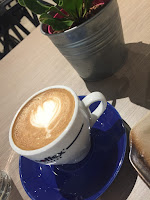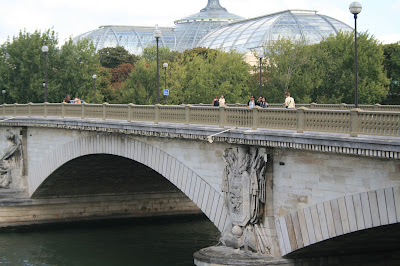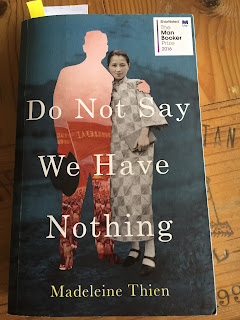Reading to me is compulsive and obsessive though my selection and picks may be random.
 Whenever I have to make a
trip to Kuala Lumpur, the motivation for me is Kinokuniya Bookstore. Since I still have plenty of
books awaiting to be devoured,I have to restrain myself from going on a binge and end up
carting loads of books back. During my recent visit to the bookshop, I had bought three non-fictions :
In Other Worlds by Margaret
Atwood, Writing Voice, The Complete Guide to creating a presence on the page and engaging Readers and Scratch on writers, money and the art of making a living. While I was at Kinokuniya, I came across books that centred
around themes like why read or why write, something I had contemplated about.
When I arrived at the airport a tad too early, I ended up browsing around
WHSmith and bought four fictions. One of them is The Pier Falls, a short stories collection by Mark Maddon. I enjoy Mark Maddon’s writing style that comes across effortless and
effective. When I returned home, I purchased another non- fiction from
Kinokuniya through their web store.Why Buddhism is True by Robert Wright was one of the books that was recommended by
delanceyplace.com.
Whenever I have to make a
trip to Kuala Lumpur, the motivation for me is Kinokuniya Bookstore. Since I still have plenty of
books awaiting to be devoured,I have to restrain myself from going on a binge and end up
carting loads of books back. During my recent visit to the bookshop, I had bought three non-fictions :
In Other Worlds by Margaret
Atwood, Writing Voice, The Complete Guide to creating a presence on the page and engaging Readers and Scratch on writers, money and the art of making a living. While I was at Kinokuniya, I came across books that centred
around themes like why read or why write, something I had contemplated about.
When I arrived at the airport a tad too early, I ended up browsing around
WHSmith and bought four fictions. One of them is The Pier Falls, a short stories collection by Mark Maddon. I enjoy Mark Maddon’s writing style that comes across effortless and
effective. When I returned home, I purchased another non- fiction from
Kinokuniya through their web store.Why Buddhism is True by Robert Wright was one of the books that was recommended by
delanceyplace.com.
 Whenever I have to make a
trip to Kuala Lumpur, the motivation for me is Kinokuniya Bookstore. Since I still have plenty of
books awaiting to be devoured,I have to restrain myself from going on a binge and end up
carting loads of books back. During my recent visit to the bookshop, I had bought three non-fictions :
In Other Worlds by Margaret
Atwood, Writing Voice, The Complete Guide to creating a presence on the page and engaging Readers and Scratch on writers, money and the art of making a living. While I was at Kinokuniya, I came across books that centred
around themes like why read or why write, something I had contemplated about.
When I arrived at the airport a tad too early, I ended up browsing around
WHSmith and bought four fictions. One of them is The Pier Falls, a short stories collection by Mark Maddon. I enjoy Mark Maddon’s writing style that comes across effortless and
effective. When I returned home, I purchased another non- fiction from
Kinokuniya through their web store.Why Buddhism is True by Robert Wright was one of the books that was recommended by
delanceyplace.com.
Whenever I have to make a
trip to Kuala Lumpur, the motivation for me is Kinokuniya Bookstore. Since I still have plenty of
books awaiting to be devoured,I have to restrain myself from going on a binge and end up
carting loads of books back. During my recent visit to the bookshop, I had bought three non-fictions :
In Other Worlds by Margaret
Atwood, Writing Voice, The Complete Guide to creating a presence on the page and engaging Readers and Scratch on writers, money and the art of making a living. While I was at Kinokuniya, I came across books that centred
around themes like why read or why write, something I had contemplated about.
When I arrived at the airport a tad too early, I ended up browsing around
WHSmith and bought four fictions. One of them is The Pier Falls, a short stories collection by Mark Maddon. I enjoy Mark Maddon’s writing style that comes across effortless and
effective. When I returned home, I purchased another non- fiction from
Kinokuniya through their web store.Why Buddhism is True by Robert Wright was one of the books that was recommended by
delanceyplace.com. On my return trip from Kuala Lumpur this Monday, I worked
out that I could spare an hour before heading to the airport so I
dropped by BookXcess Bookshop at Starling Mall. I picked up The Last
Word, a fiction by Hanif Kureishi and The Rosie Effect by Graeme Simson. I have read fictions by both these writers and I
like their wits. I have read first few pages of every book I
have purchased in August and I will settle on some of them as I normally do
read a few books at the same time.
On my return trip from Kuala Lumpur this Monday, I worked
out that I could spare an hour before heading to the airport so I
dropped by BookXcess Bookshop at Starling Mall. I picked up The Last
Word, a fiction by Hanif Kureishi and The Rosie Effect by Graeme Simson. I have read fictions by both these writers and I
like their wits. I have read first few pages of every book I
have purchased in August and I will settle on some of them as I normally do
read a few books at the same time.
A friend has lent me her
copy of Stephen King’s memoir on
writing and I am half way through it. It is definitely worth a read.
There are books lying in my car so that I will always
have something to read while waiting for a friend to
turn up for coffee ( in all likelihood I am the one running late because I am stuck on reading or writing). I read when I wait for my
turn to have my eyes checked by the ophthamologist but I dislike it when he applies eye drop to get the pupils dilated as I will have to keep both my eyes closed then. I read when and where I can.
I compartmentalise my reading in that I will read different books at various intervals during the week. Some books are best read in one sitting. One such novel is In the Café of Lost Youth written by Patrick Modiano, translated from the French by Euan Cameron.
I compartmentalise my reading in that I will read different books at various intervals during the week. Some books are best read in one sitting. One such novel is In the Café of Lost Youth written by Patrick Modiano, translated from the French by Euan Cameron.
 The story is about
Jacqueline Delanque, a young girl growing up in poverty in Montmartre. She is
on a restless quest to an unknowable destination. She frequents the Café Condé
where young students, aspiring writers and world-weary academics go. They are the lost youth who wander in
and they are all in search of the same elusive something. There are also older customers who
never make reference of their past.
The story is about
Jacqueline Delanque, a young girl growing up in poverty in Montmartre. She is
on a restless quest to an unknowable destination. She frequents the Café Condé
where young students, aspiring writers and world-weary academics go. They are the lost youth who wander in
and they are all in search of the same elusive something. There are also older customers who
never make reference of their past.
At Le Condé, Jacqueline was different from the others. They named her “Louki” .
'Those who frequented Le Condé would often be carrying a book, its cover stained with wine, which they would lay casually on the table. Les Chants de Maldoror, Les Illuminations, Les Barricades mystérieuses. But she, to begin with, was always empty-handed. Then, she probably wanted to be like the others, and one day, at Le Condé, I caught her one her own, reading. From then on, her book never left her.’
She used to go to Mattel,
a stationer’s and bookseller’s shop on boulevard de Clichy that stays open
until one o’clock in the morning.
In Jacqueline's narrative,
“ Yes, this bookshop was
not merely a refuge but also a stage in my life. I often stayed there until
closing time.”
“ I wasn’t truly myself
except at the moment I was running away. My only good memories are memories of
flight or escape. But life always got the upper hand.”
Sometimes life will somehow get you and you imagine or wish you could just run away but you know you just have to let go of whatever that affects you. I find joy in reading to prevent myself from becoming too overwhelmed by the life that I know. I read because I like to read.
Sometimes life will somehow get you and you imagine or wish you could just run away but you know you just have to let go of whatever that affects you. I find joy in reading to prevent myself from becoming too overwhelmed by the life that I know. I read because I like to read.

To get its rhythm, In the Café of Lost Youth has to be read without interruptions from start to finish. The story is told from different perspectives by four narrators, a young student who goes to the Café Condé, Roland, Louki and Pierre Caisley, a private investigator engaged by Louki’s husband. The mood is melancholic and affecting as the different narrations construct a picture of Jacqueline and what happened to her. Patrick Modiano is crafty at capturing the scenes of old streets in Paris and the nostalgic feel that evokes memories of the indefinable past and lost youth. click







